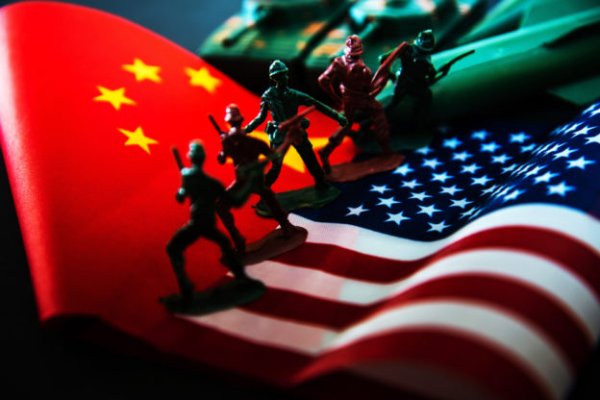US-based AI chip output is Matai, Taiwan s production in the US can become the focus

The Biden administration of the United States originally introduced a ban on AI chip exports to China. Current President Trump has extended the policy and expanded restrictions to Southeast Asia. Bloomberg quoted people familiar with the matter as saying that the US Department of Commerce is developing new regulations to restrict the export of AI chips to Malaysia and Thailand to prevent the two countries from becoming transfer stations for Chinese companies to illegally obtain advanced chips.
If this new rule is officially launched, it may hinder Southeast Asia's continued position as a chain of AI servers, but it also unexpectedly makes the advantages of "Made in the United States" even more visible, especially the most complete layout in Taiwan's factory, which will become the biggest beneficiary. The legal person is optimistic that Dunghai not only has mastered the delivery of two generations of NVIDIA GB200 and GB300 AI servers. With the core customer CoreWeave coded in the United States, and more customers considering the stability of the supply chain, it has turned down to the downward order of US factories. Dunghai's US factory orders are expected to grow significantly.
The battleground has expanded to Southeast Asia, and the Sino-US AI technology war has risenThe United States has banned the export of high-level AI chips and related equipment to China as early as 2022. In recent years, it has increased its export regulations many times and covered more than 40 countries with transfer risk. Despite this, the government still worrys that AI chips may flow into China from a third place, including providing remote access through Malaysia, Thailand or cloud service providers.
In order to close these loopholes, the Trump administration's latest draft export control bill will impose restrictions on Malaysia and Thailand, and may require that only data centers operated by the United States or "approved allies" can legally obtain AI chips. However, the draft has not yet been finalized and the final implementation details are still to be cleared.
Bloomberg pointed out that the reason why American officials are targeting Matai is because of the recent surge in imports of AI servers and advanced chips in these two places, indicating that there is doubts about the market's turnover. A Singapore court also recently tried a case where three men suspected of transferring AI servers containing NVIDIA advanced chips to Malaysia, and finally caught the final flow of buyers.
Among Taiwanese factories, Dung Hai has the fastest AI server production in the United States. It has set up production sites in Texas and Wisconsin. It is the only Taiwanese factory that has set up an AI server research and development center in San Jose, California, and is able to jointly develop new machines with customers nearby. The legal person pointed out that Dunghai has recently shipped NVIDIA GB200 AI servers, and GB300 is also ready to take over the production.
Market news pointed out that the cooperation between Dunghai and NVIDIA has been further deepened, and it is expected to introduce humanoid robots at the Houston Factory in Dunghaide to launch the GB300 line operation. Donghai also announced recently that its US subsidiary Ingrasys spent about US$142 million (about NT$4.7 billion) to purchase Texas land and factory buildings, showing the acceleration of the capacity expansion process.
In addition to NVIDIA, AI cloud service providers such as CoreWeave have also become core customers of Dunghai's US factory. Under the consideration of export policies and supply chain risks, more American businessmen will be the first to purchase "Made in USA" server products.
Created, manufactured in the United States by code, dispersing Southeast Asian risksIn addition to Dunghai, other Taiwanese factories have also greatly strengthened their production layout in the United States. In May, it will invest more than US$1.1 billion (about NT$33 billion) to expand the Dallas factory in Texas, the United States, and increase its subsidiaries to strengthen the production capacity of AI servers. Guangda continues to regenerate production systems through the United States and Taiwan, due to the diverse needs of cloud and AI computing customers.
When faced with the rising uncertainty of Malaysia and Thailand, the legal person believes that "removal removal" will become a new normal for AI supply chain in the future. For Taiwanese manufacturers, those who have expanded American production capacity earlier and reduced orders for high-end AI servers will be able to lift this wave supply chain reassembly.
US Plans AI Chip Curbs on Malaysia, Thailand Over China Concerns(Picture source: Technology News)
Extended reading: Prevent China from behind! The United States has extended export controls to limit AI chips from Malaysia and Thailand



